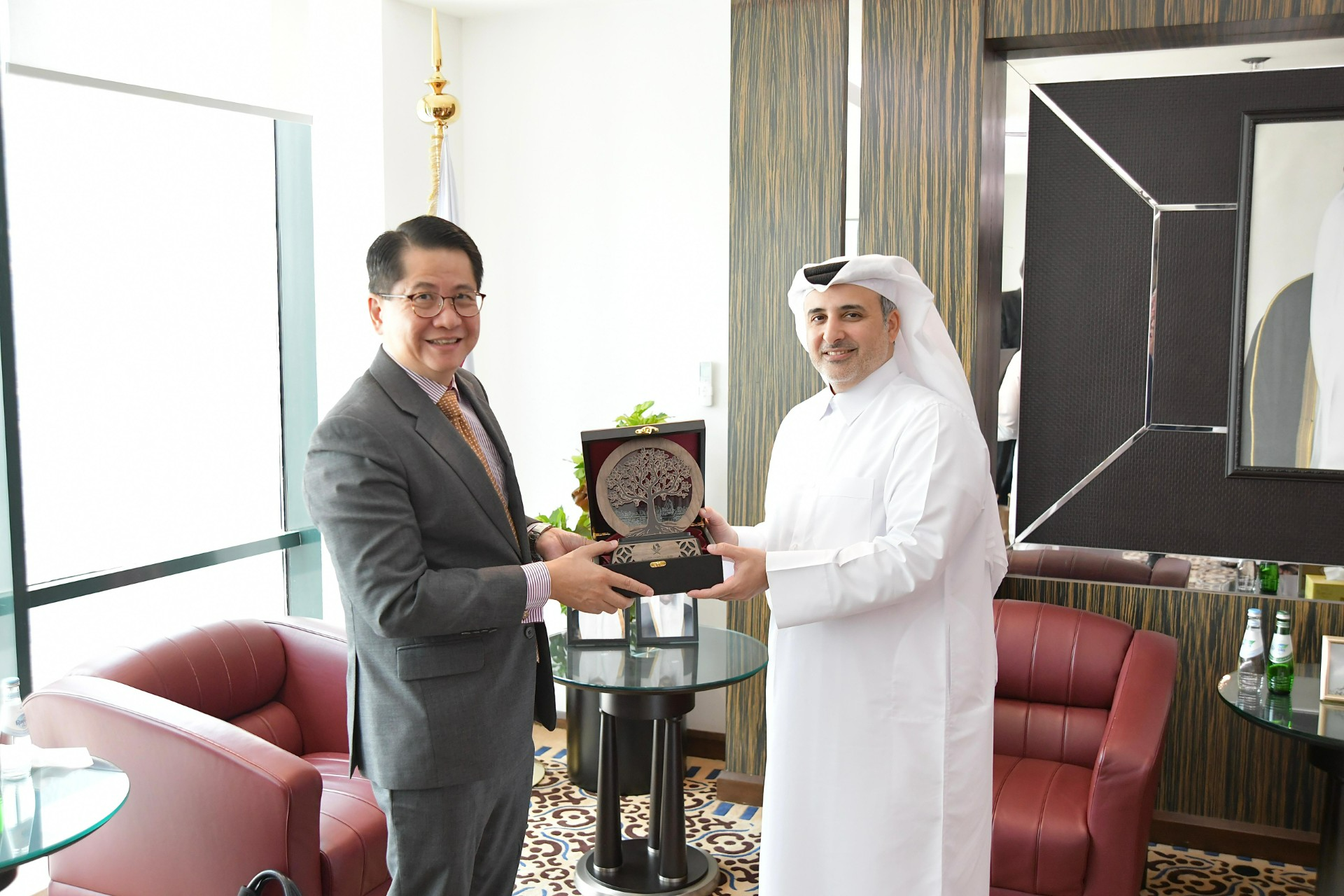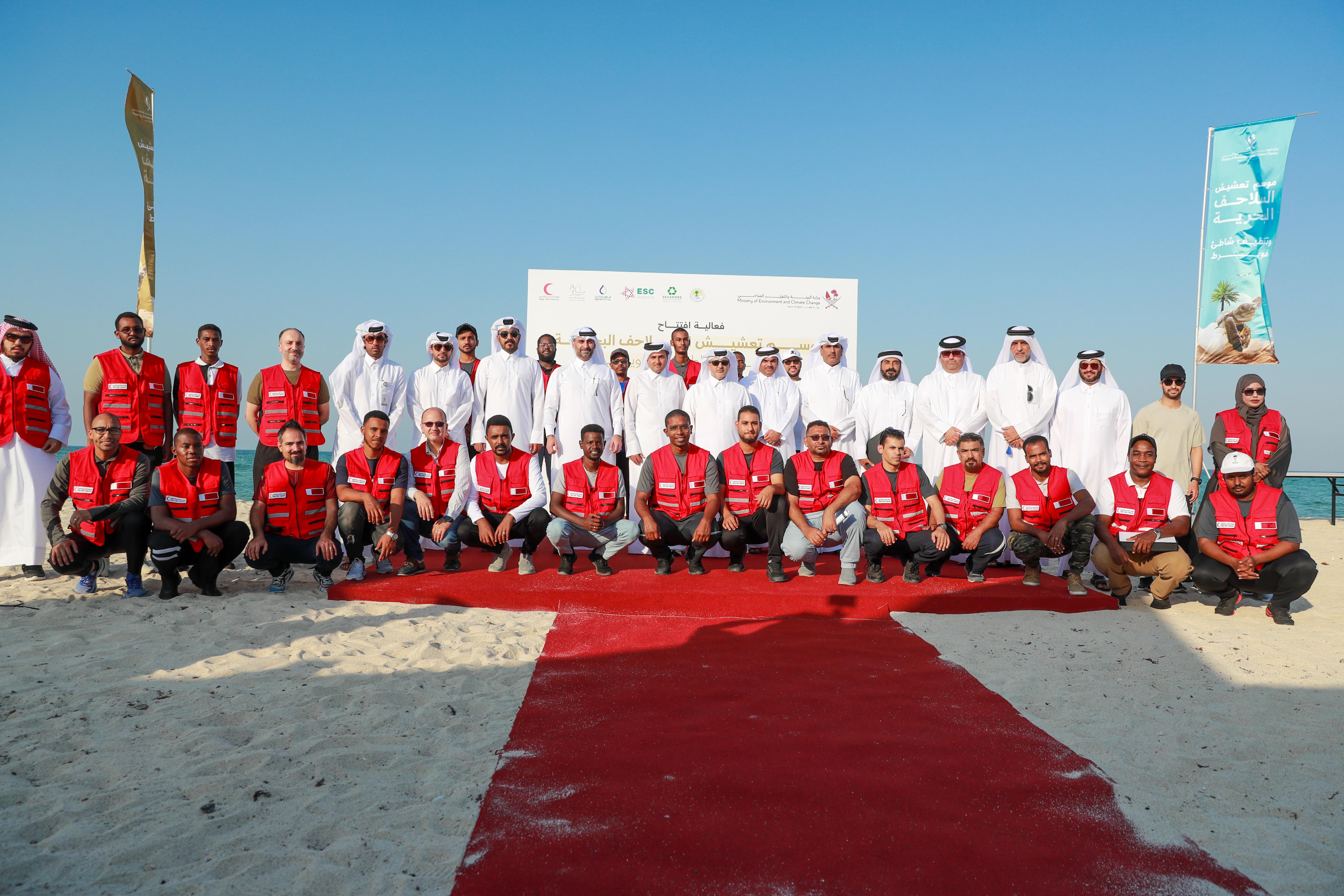
With the presence of His Excellency Sheikh Dr. Faleh bin Nasser Al Thani, the Ministry of Environment and Climate Change launches the Early Detection Project for Oil Pollution in the Marine Environment using satellite technology
With the presence and patronage of the Minister of Environment and Climate Change, His Excellency Sheikh Dr. Faleh bin Nasser Al Thani, the Environmental Operations Department at the Ministry of Environment and Climate Change launched yesterday the Early Warning System project for monitoring oil pollution in the marine environment of Qatar through satellite technology. The inauguration took place at the ministry’s headquarters.
The project, considered the latest of its kind, is being implemented in collaboration with Sky Perfect Jsat Corporation, Kongsberg Norwegian Satellite Company, and ITOCHU Corporation from Japan.
The system is characterized by its precise monitoring of oil pollution using radar satellite technology. It can detect small oil spills with a volume as low as 40 liters without being affected by weather conditions such as clouds, rain, fog, or sunlight. The system operates by emitting radar waves that are reflected from the surface of the oil slick. The satellite captures these reflections as black or dark spots and transmits the images and reports to the ministry.
In her speech at the inauguration ceremony, Engineer Daren Saleh Al-Masifri, Head of the Pollution Control Department at the Environmental Operations Division, stated that the Early Warning System project for monitoring and tracking oil spills aims to contribute to the realization of the vision and strategy of the Ministry of Environment and Climate Change in preserving the Qatari marine environment and preventing all types of pollution that negatively affect marine organisms. She noted that the system meets the requirements of the International Convention on Oil Pollution Preparedness, Response, and Cooperation of 1990, which Qatar has signed.
She further explained that the system monitors the exclusive economic zone of Qatar throughout the day, serving as an early warning mechanism to alert any potential oil pollution. This enables various rapid response teams to promptly and efficiently address the effects of such pollution. Additionally, the system aids in identifying and implementing administrative and legal measures against the entity responsible for the pollution.
The Head of the Environmental Pollution Control Department affirmed that the project will daily provide the Ministry of Environment and Climate Change with satellite images along with a detailed report of Qatar’s exclusive economic zone through the cVeiw platform. She highlighted that the project contributes to supporting national personnel with extensive and exceptional expertise in satellite monitoring and oil spill response. Furthermore, it enhances the capability for rapid response to any pollution incidents occurring in the marine environment.
The inauguration ceremony included a presentation showcasing the project’s objectives, features, and upcoming operational stages. Additionally, satellite images of Qatar’s exclusive economic zone were displayed, captured during the project’s trial operation phase, covering approximately 85% to 95% of the economic zone.
This comes as part of the efforts of the Ministry of Environment and Climate Change to preserve marine life and its rich biodiversity. These efforts include expanding the establishment of natural reserves, combating all forms of pollution, enacting stringent laws to prevent violations of the marine environment, and working towards its protection and safeguarding against any negative impacts.


